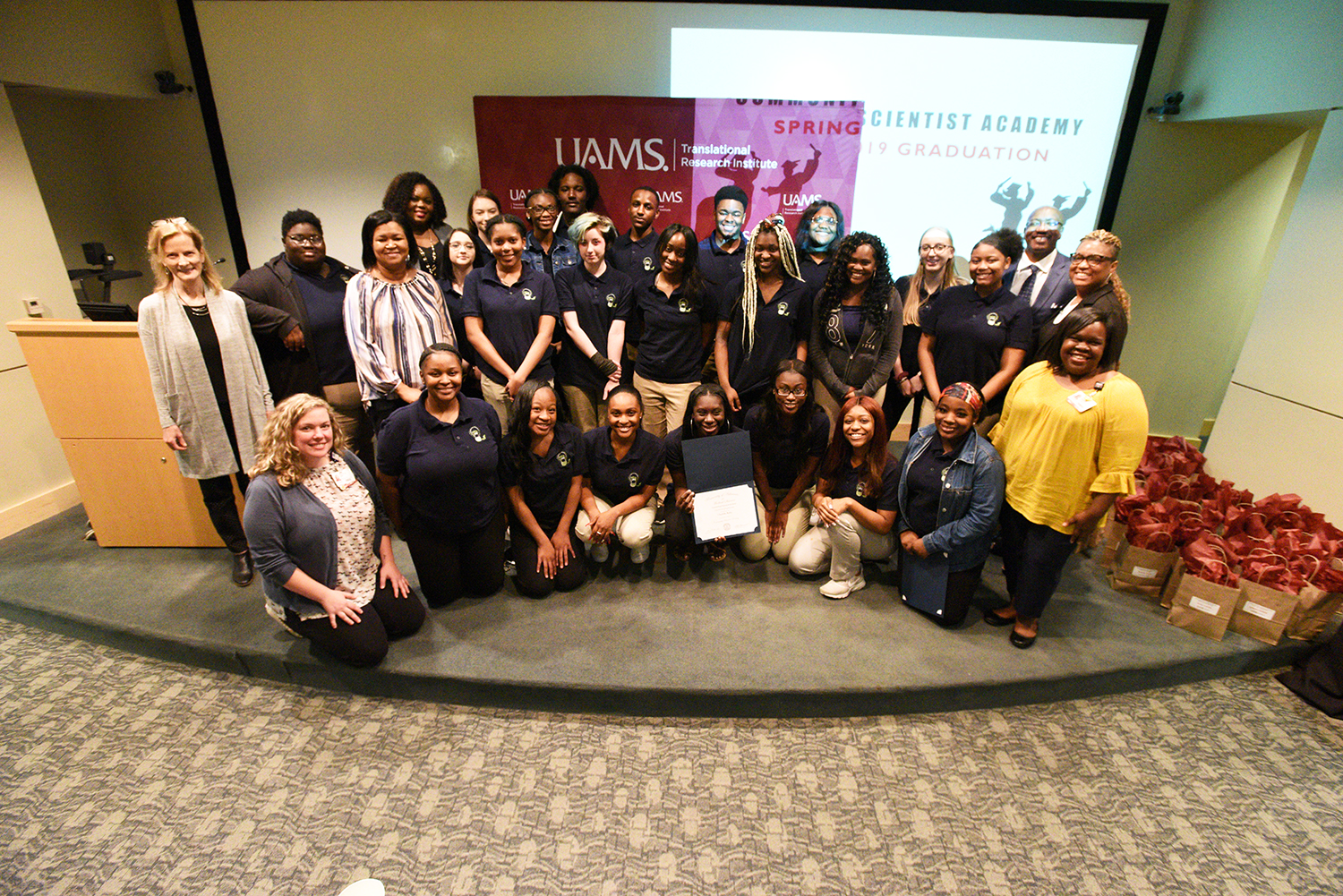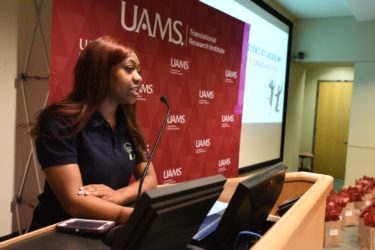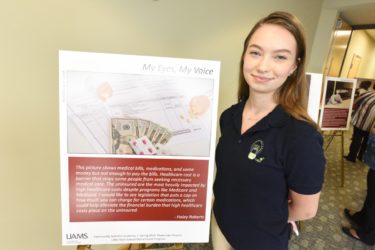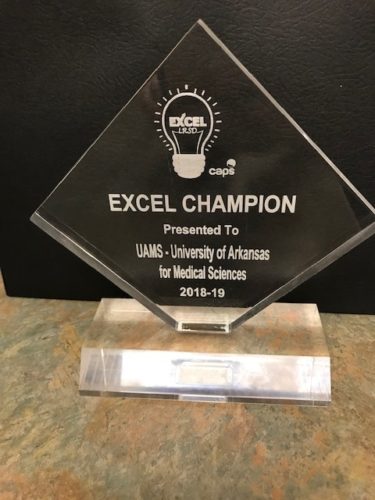Community Scientist Academy Graduates First High School Class
| Shanell Young, a senior at Little Rock Parkview, wasn’t sure what to expect during the spring 2019 UAMS Translational Research Institute Community Scientist Academy. After receiving her graduation certificate at a UAMS ceremony, she went to the lectern to share her takeaways.
“What people actually refer to as research nowadays is really just googling,” she said. “After 10 weeks of participating in the Community Scientist Academy, we definitely feel different now. Research is not just googling.”
Young and her fellow graduates – the first high school students to attend the academy – came from across the Little Rock School District as Excel students in the Advanced Medical Sciences Program.
The academy, which held its first class in 2016, has graduated 81 community members. Its purpose is to increase community understanding about the research process and offer research decision-making opportunities to communities, patients and other stakeholders. It will remain focused on adult participants, although the Translational Research Institute will continue its partnership with the school district.
The opportunities offered academy graduates include reviewing grant applications; advising on research projects; serving on community review boards, community advisory boards and patient and family advisory councils; and assisting with ARresearch, a Translational Research Institute program that signs up potential volunteers for UAMS research studies.
Nakita Lovelady, Ph.D., M.P.H., challenged the high school students to discover their passion. Raised in Helena-West Helena, Lovelady witnessed up close the devastating impacts of chronic diseases, depression and violence within the African American community. She recently earned her doctorate with a focus on interventions that address gun violence.
“Figure out what keeps the fire burning inside of you,” she said. “What do you talk about or read about all day? What issue is important to you? Who will you help? What difference do you want to make in this world or your community? Think about that and then identify how you can use research to achieve those goals. There are communities like mine, like yours, all across this nation that need you.”
Students were required to write a paper and create a poster using “photovoice,” which required them to take a photo that depicts a health-related issue and write a long caption explaining the photo.
Haley Roberts, a senior at Central High School, said the academy exceeded her expectations.
“Coming in and actually getting to talk to people who are excited about what they’re talking about, who are excited about their job, that excitement spreads to you, too, and you become excited about it,” she said. “I think the whole program took us off guard. It wasn’t
something that I expected to learn, to appreciate. Everyone is affected by research whether they know it or not.”
Roberts said she became engrossed in the topic she chose to write about — health care costs. “My paper was twice as long as it needed to be because I just enjoyed what I was writing about,” she said.
Acacia Nelson, a senior at Central High, said the academy showed her the role research can play in improving lives. The daughter of two law enforcement officers displayed a poster with a young African American boy holding a sign that says “Do Not Shoot!” with a caption about the physical and mental trauma associated with police brutality.
Prior to attending the academy she had a narrow view of the jobs available in health care, but now she is revisiting her idea of becoming a nurse practitioner.
“It’s kind of opened my eyes to see that there’s different areas in the medical field that you can give back to the community. I’m really interested in public health. Just helping people — African American boys, homeless people, foster kids, I feel like research can make a difference.”
Zandria Brewer, a senior at Central High, displayed a poster of a young African American boy playing by himself in the rural Arkansas Delta. Her poster noted the health disparities for the African American communities living where there is often no phone service, grocery stores or hospitals.
“If someone is really hurt, they may not make it,” said Brewer, who lived in Marianna near the Mississippi River when she was younger.
The poster project was perfect for her, she said. “I’m a visual learner, and during this academy we did a lot of visual things,” she said. “We got to choose what we wanted to research and it got to be something interesting and something relevant. The poster project helped me voice what’s happening now and ways to change it.”





